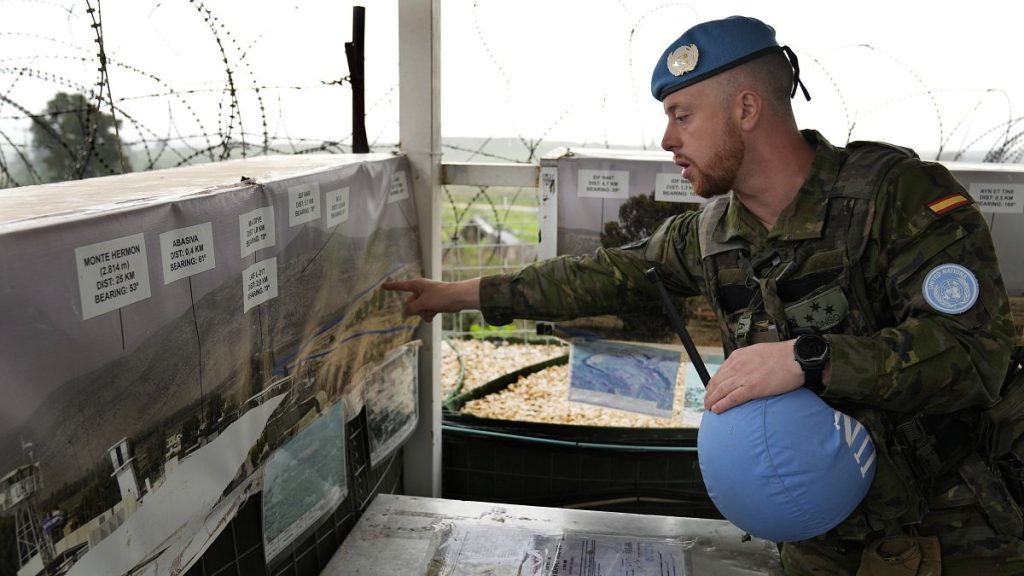The UN peacekeepers in southern Lebanon are facing warnings from the Israeli military to move away, but they are maintaining their positions despite this. G7 defence ministers have expressed their concern for the safety and security of the peacekeepers following a series of attacks by the Israeli military. In a joint statement, the ministers emphasized the need to protect peacekeepers as essential to all parties involved in a conflict. They called for a cessation of hostilities in line with UN Resolution 1701 and a diplomatic solution to the fighting. The statement highlighted the stabilizing role of the Lebanese Armed Forces and the essential role of UNIFIL, the international mission established by the UN Security Council in 1978 to restore peace and security in southern Lebanon.
UNIFIL comprises 10,000 peacekeepers from 50 nationalities, including 16 EU countries, and regularly patrols the Blue Line, the UN-drawn border between Lebanon and Israel. The EU foreign policy chief, Josep Borrell, suggested that UNIFIL could be more effective, but decisions regarding its future rest with the UN Security Council. Meanwhile, attacks against UNIFIL by the Israeli military have continued, prompting the mission to maintain its positions to monitor the conflict and ensure humanitarian aid reaches civilians in need. Despite warnings from the IDF to move away, UNIFIL is holding its ground in the face of increasing risks to its troops from attacks by both the Israeli military and Hezbollah.
Earlier this month, an Israeli tank reportedly fired on the UNIFIL headquarters in Naqoura, injuring two peacekeepers. The deteriorating security situation due to the fighting between Hezbollah and Israeli forces has forced UNIFIL to suspend most of its patrols near the Blue Line. Israel has criticized UNIFIL for being ineffective in preventing Hezbollah’s military activities and has raised concerns about the armed group’s proximity to peacekeeper bases. The G7 defence ministers reaffirmed their unity in addressing security challenges globally, including the conflicts in the Middle East and Russia’s war in Ukraine. They expressed their intent to continue providing military assistance to Ukraine in the short and long term and condemned Iran’s ballistic missiles and large-scale attacks against Israel.
The joint declaration by the G7 ministers also highlighted the importance of acting in accordance with international law in addressing security issues. Discussions at the meeting included security concerns in Africa and developments in the Asia-Pacific region. Italy, as the 2024 rotating chair of the G7, is leading efforts to address instability and security challenges in these regions with the support of member states like the United States, Canada, Japan, the UK, Germany, and France. The G7 ministers reiterated their commitment to providing assistance to Ukraine and addressing security threats in various parts of the world, underscoring the need for cooperation and unity in the face of global conflicts and instability.













